
Perri Thaler
Perri Thaler is an intern at Live Science. Her beats include space, tech and the physical sciences, but she also enjoys digging into other topics, like renewable energy and climate change. Perri studied astronomy and economics at Cornell University before working in policy and tech at NASA, and then researching paleomagnetism at Harvard University. She's now working toward a master's degree in journalism at New York University and her work has appeared on ScienceLine, Space.com and Eos.
Latest articles by Perri Thaler

'Like trying to see fog in the dark': How strange pulses of energy are helping scientists build the ultimate map of the universe
By Perri Thaler published
Astronomers are using radio pulses from space to find missing baryonic matter and learn about supermassive black holes, stellar formation and galaxy evolution.

How does 'getting your tubes tied' work?
By Perri Thaler published
Tubal ligation — the procedure that blocks eggs from traveling through the fallopian tubes — is an extremely effective way to lower one's chances of pregnancy to almost zero. Here's how it works.

'This technology is possible today': Nuclear waste could be future power source and increase access to a rare fuel
By Perri Thaler published
One physicist says his design to use nuclear waste as fuel for nuclear fusion could help the U.S. be a leader in the fusion economy.
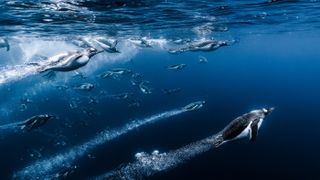
Rocket-like jellyfish, regal Komodo dragon and harrowing whale rescue — see the stunning Ocean Photographer of the Year 2025 finalists
By Perri Thaler published
Finalists in the Ocean Photographer of the Year 2025 competition capture beautiful images of animals and people oceans.

Auroras may be visible from 18 states this weekend as solar storm barrels toward Earth
By Perri Thaler published
A geomagnetic storm could hit Earth Aug. 8 or 9, possibly bringing the dazzling northern lights with it.

Scientists synthesized elusive 'super alcohol' — a 'seed of life molecule' that marks a step toward finding alien life
By Perri Thaler published
Scientists have synthesized methanetetrol, an elusive alcohol that could be the foundation of alien life.

Proposed spacecraft could carry up to 2,400 people on a one-way trip to the nearest star system, Alpha Centauri
By Perri Thaler published
The design for a 36 mile long spacecraft, called Chrysalis, includes libraries, tropical forests and structural manufacturing facilities, all supported by artificial gravity.
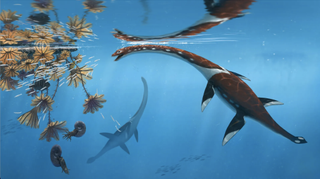
'Most remarkable' fossil of Jurassic sea monster from Germany is previously unknown species
By Perri Thaler published
Paleontologists in Germany have described a never-before-seen species of Jurassic marine reptile from 183 million years ago.

A parade of volcanoes is erupting in Russia following an 8.8 earthquake
By Perri Thaler published
Six Russian volcanoes erupted shortly after an 8.8 magnitude earthquake struck nearby, with a seventh possibly to follow.

Legionnaires' outbreak in NYC causes two deaths
By Perri Thaler published
Two people have died from a Legionnaires' disease outbreak in Harlem, New York City, and 58 people total have contracted the illness.

How does the morning-after pill work?
By Perri Thaler published
The morning-after pill helps prevent pregnancy after unprotected sex, but its efficacy differs depending on the user's body mass and the timing of when they take the medication.

Scientists just recreated the universe's first ever molecules — and the results challenge our understanding of the early cosmos
By Perri Thaler published
In a first, scientists have recreated the formation of the first ever molecules in the universe to learn more about early star formation.

Warm and cool temperatures travel on completely different paths to the brain
By Perri Thaler published
Researchers have mapped out the neural pathway that humans use to perceive cool temperatures and found that it's separate from the one for sensing heat.

People who see society as cutthroat value antagonistic leaders, study finds
By Perri Thaler published
Research suggests that whether people view the world as competitive or cooperative impacts how they perceive antagonistic leaders.
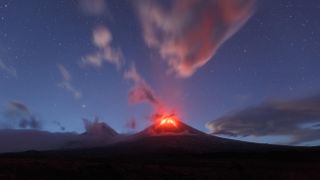
Russian volcano explodes in 'powerful' eruption, likely intensified by 8.8 magnitude earthquake
By Perri Thaler published
Klyuchevskoy volcano in Russia erupted shortly after a powerful 8.8 magnitude earthquake in the same region.
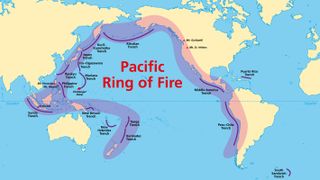
What is the Pacific Ring of Fire?
By Perri Thaler published
The Pacific Ring of Fire is a horseshoe-shaped belt of volcanoes known for explosive eruptions and intense earthquakes.

96% of oceans worldwide experienced extreme heatwaves in 2023, new study finds
By Perri Thaler published
The extreme marine heatwaves of 2023 may signal a tipping point for Earth's climate, a new study suggests.
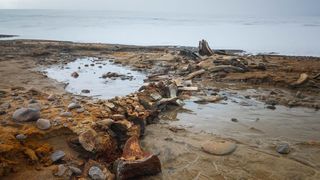
Ancient whale 'graveyard' discovered under melting Russian glacier
By Perri Thaler published
An Arctic expedition found a collection of ancient whale remains where a rapidly retreating glacier once lay.

Japan sets new internet speed record — it's 4 million times faster than average US broadband speeds
By Perri Thaler published
A team of scientists in Japan shattered the record for the fastest internet speed by developing new fiber optics.

Quantum materials with a 'hidden metallic state' could make electronics 1,000 times faster
By Perri Thaler published
By heating and cooling a quantum material called 1T-TaS₂, researchers were able to control its conductive properties, showing that this type of material could speed up electronic processing one thousand fold.

New AI system can 'predict human behavior in any situation' with unprecedented degree of accuracy, scientists say
By Perri Thaler published
A new artificial intelligence (AI) model called Centaur can predict and simulate human thought and behavior better than any past models, opening the door for cutting-edge research applications.
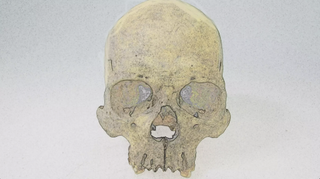
Rare form of leprosy infected people in Americas before European arrival, 4,000-year-old bones suggest
By Perri Thaler published
Roughly 4,000-year-old bones from Chile contain genetic evidence of leprosy, suggesting that a rare form of the bacteria that causes the disease may have been circulating in the Americas and long before the Europeans arrived.

1,400-year-old temple ruins the size of a city block unearthed in Bolivia
By Perri Thaler published
Ruins of the Palaspata temple complex from the millennia-old Tiwanaku civilization are unraveling some mysteries about the relatively unstudied society.

125,000-year-old 'fat factory' run by Neanderthals discovered in Germany
By Perri Thaler published
An analysis of ancient animal bones found in Germany suggests that Neanderthals extracted grease from them to gobble up 125,000 years ago.
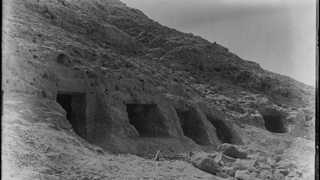
Oldest and most complete ancient Egyptian human genome ever sequenced reveals ties to Mesopotamia
By Perri Thaler published
In a first, researchers have sequenced the complete genome of a man from ancient Egypt, and the results reveal that he had genetic ties with Mesopotamian DNA.
Get the world’s most fascinating discoveries delivered straight to your inbox.
